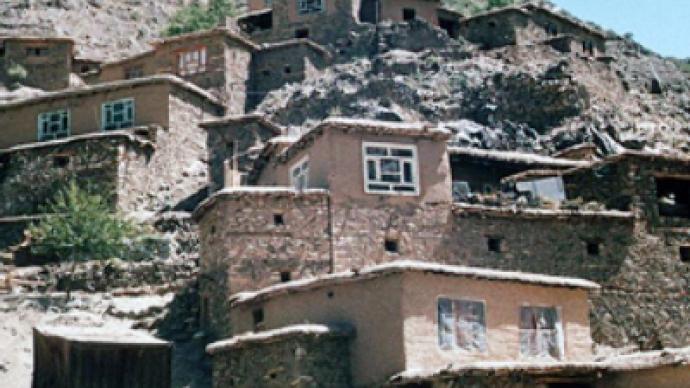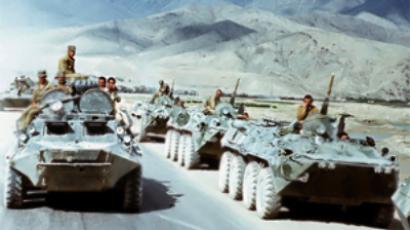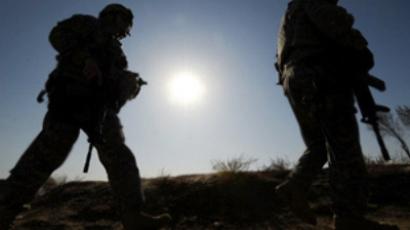'Russia must come back to Afghanistan'

A coalition of the major world powers can save Afghanistan, believes Yury Krupnov, Russian political analyst and the head of the Development movement and the Institute for Demography, Migration and Regional Development.
He has recently visited Afghanistan, where he met the leading politicians and experts from both the government and the opposition.
Yury Krupnov: Afghanistan is now in a state of humanitarian catastrophe. It is enough to say that more than a quarter of its population starves for the second year running. Up to 80 per cent of Afghan people do not have any job and there are no chances to get it in the future. The average daily income per capita is only one U.S. dollar.
The world’s leading countries have to change the way they deal with Afghanistan profoundly. Russia and the United States must form a coalition with the main task of promoting complete recovery of Afghanistan and its further development.
RT: Does it mean that NATO operation in Afghanistan is a failure?
Yury Krupnov: The question is what the real NATO goals in Afghanistan are. So far it seems that NATO presence in the country is actually an attempt to preserve this organization which would otherwise be absolutely useless and out of date. That is why the Alliance actually works to prolong its own existence and create a military and strategic bridgehead in the heart of Eurasia, according to the recommendations of Zbigniew Brzezinski, who openly called Central Eurasia and Afghanistan “the main geopolitical prize for America” ten years ago.
RT: Maybe, the Soviet troops had similar goals thirty years ago?
Yury Krupnov: It would be wrong to compare what was done by the Soviet forces and what is being done by NATO. The Soviet presence in the first place was providing security for economic, scientific, educational and humanitarian development of Afghanistan. The United States and NATO are fighting terrorism and creating a geostrategic bridgehead on the borders of Iran, India, China and Russia. The mujaheddin military operations against Soviet troops were generously supported and financed by the United States and NATO, China and a number of Arab countries, including Iran, United Arab Emirates and Pakistan. These days no country would fight with the United States or NATO through Afghan opposition. Thus, these are absolutely different cases.
RT: What would your say about Afghanistan’s neighbours in their present conditions? What is the situation in the region?
Yury Krupnov: It is very unstable, because the region is being torn in pieces by interests of the world’s major players. The governments are weakened by drug-corruption and transnational crime.
RT: Were the terrorist acts in Mumbai somehow connected with Afghanistan, in your opinion?
Yury Krupnov: I think that the main goal of the terrorist attacks on India’s Mumbai was to force India to get involved into the war in Afghanistan and to restrain India’s development. On the whole, Afghanistan has become a global dark hole which sucks in all the neighbouring countries.
The role of Pakistan is a tragic one. On the one hand it is surrounded by a hostile environment and is deeply concerned with the threats to its sovereignty and territorial integrity. On the other hand the United States and China use it as an instrument of promoting their interests in the region. Thus Pakistan has become a staging area for clashes between global players.
The U.S. policies towards Iran are also connected with the situation in Afghanistan.
Actually the United States use Afghanistan to talk to the countries of the region from the position of strength and at the same time to put difficult questions to their governments.
RT: Many experts say that the main threat Afghanistan poses to the world is a drug threat.
Yury Krupnov: Indeed, it is a world problem and a threat which is constantly being underestimated. After the NATO intrusion in Afghanistan opium production in the country has grown by at least 300 per cent. The main victim of Afghan opiates is Russia, where the consumption of heroin and other opiates is five-to-ten times more than in Europe, let alone the United States. The problem of the Afghan narco-state should be brought to the forefront of the world politics by the United Nations and other international organizations.
RT: But last autumn NATO decided to fight against drugs production in Afghanistan. Has anything changed since then?
Yury Krupnov: No, nothing has changed, because there were no serious efforts. Actually it could not, because the opiates production in Afghanistan is of no interest for the United States and NATO. They are not affected by this problem. On the other hand there are numerous transnational mediators, who get vast profits from sales of heroin and share these profits with those who control infrastructures and police regimes in Afghanistan and around it. These people also stay behind attempts to legalise drugs usage all over the world.
RT: What can change the situation?
Yury Krupnov: Russia must take a more active position. This is what we said in our report “The path to peace and concord in Afghanistan will be determined by the position Russia takes”. Russia can and must offer a comprehensive plan for Afghanistan’s development, while the United States and NATO could support and sponsor it. There is no other way. We need a strong coalition of Russia, the United States and some other leading countries in NATO – first of all Germany and Italy. Thus, the friendship of allied powers of WW2 could get a second wind.
RT: What particular steps would such a development plan propose?
Yury Krupnov: The main task for the Afghan government and the international community is to set up a life-support infrastructure, able to provide no less than 1 kWh of electricity, one litre of drinking water and 10 litres of process water per day for each citizen of Afghanistan. So, there is a great need for an Afghanistan State Electrification Plan, similar to the early 20th century GOELRO (State Plan for the Electrification of Russia), which provided the impulse for the Russian and Soviet industrialisation. In particular, full cascades of power plants must be built on the rivers of Afghanistan, primarily on the Kunduz, Kokcha, Kabul, Helmand and Hari Rivers. Furthermore, it is necessary to build or modernise the electric power lines from Tajikistan, Turkmenistan and Uzbekistan to Afghanistan to provide additional electricity for the country's needs.
Efforts must also be focused on solving the problem of providing Afghanistan with adequate drinking and process water. This is a crucial factor in overcoming the imbalance between population growth and the reduction of overall land under cultivation and agricultural output.
One of the strategic objectives must be the construction of a railway line on the Mashhad (Iran) – Herat – Kandahar – Quetta (Pakistan) route, which would integrate Afghanistan into the global railway network and goods circulation system. This line must become the backbone of the Afghan Development Corridor, which would be a place of concentrated implementation of development projects and would make Afghanistan a strong and economically self-sufficient state, able to take care of its further development and prosperity independently.
RT: But these plans seem unrealistic at a time when all countries in the world are affected by the global economic and financial crisis.
Yury Krupnov: On the contrary, I would call all other proposals unrealistic. The global crisis is the basis for transition from speculative financial political models to the models of industrial development. It would be unwise to reject positive economic projects at this time.
Daria Sologub for RT














